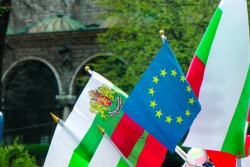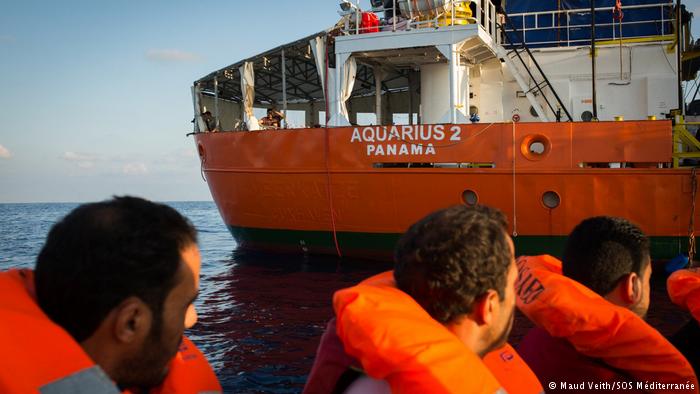EUObserver, September 21, 2018
By JULIE PASCOET
Public discourses across Europe hammering that Muslims are a problem are currently justifying the adoption of policies, legislation and practices that are putting our core democratic and fundamental rights principles at risk.
We shouldn't fall into the trap of scapegoating Muslims and migrants and blaming them for the EU's crisis. This will further divide us instead of enabling us to live together in a safe society.
Counter-terrorism and counter-radicalisation measures recently adopted in some EU countries have already led to serious human rights violations, including racial profiling by law enforcement authorities, police abuses during raids and the use of administrative restrictions on the basis of vague and discriminatory criteria.
In the United Kingdom for instance, surveillance cameras are placed in so-called 'Muslim areas' and social workers are required to denounce 'radical' behaviour, often defined by strict observance and rarely linked to any criminal offence.
As a result, many innocent Muslims are targeted mainly on the basis of their religious practice, with no evidence pointing to their involvement in any criminal act.
These laws and policies ultimately also have a negative impact on the rights of all Europeans, whether it is restricting freedom of expression, increasing surveillance or targeting human rights defenders.
As a progressive society, we shouldn't accept these as collateral damages in the name of security.
They are fuelling a generalised suspicion and marginalisation of Muslims following terrorist attacks and the current migration context in Europe.
As are stigmatising and racist discourses, representing Muslims as the "enemy from within" who needs to be controlled and policed, and as threats to "European values" and the "European way of life", which in practice actually only mean that diversity is not welcome in Europe.
Instigating fear and suspicion in the European population's hearts and minds will only lead to further insecurity and violence, instead of creating resilient and trustful communities that can work together for a better future for all.
Indeed, instead of being able to fully participate in European society, Muslim people's lives are dictated by a sense of insecurity, injustice and fear of retaliation.
In the words of Amar, subjected to a house search in France in 2015: "It feels like if you display your religion, if you are bearded or wear a religious symbol or dress or if you pray in a particular mosque you can be considered to be "radical" and thus targeted. If you try not to display your religion too much, then they think you are concealing something."
Even children are being criminalised, resulting in traumatic experiences for them. For example, a five-year old girl in France was suspected of fasting and brought to hospital by eight armed policemen, although her parents and doctors denied that she was fasting.
Now the European Parliament, instead of putting energy into developing long-term solutions to address the current consequences of the EU's socio-economic crisis, has gone one step further with the establishment of a closed-door special committee on terrorism.
Discussions in this committee further illustrate a tendency to reiterate racist connotations between terrorism and Europe's Muslim population.
Don't ignore far-right
There is a strong trend in European and national policies and practices to racially define terrorism and radicalisation by over-focusing on Muslim populations, whilst completely ignoring far-right terrorism and radicalisation for instance.
However, this threat is real and has already killed in Europe: far-right attacks targeting Muslims and progressive forces have led to several deaths and uncovered plots, including in France and the United Kingdom.
The 'escalator' approach whereby a conservative religious practice would lead to support for violent terrorism is bound to target innocent Muslim individuals and families, fuel suspicion towards any practising Muslims, and to generate violent backlash from the mainstream population. In addition, discriminatory measures are fuelling a sense of insecurity, injustice and defiance toward authorities, making them counter-productive in the long term.
EU decision makers need to get serious about tackling Islamophobia, which has become a major society issue impacting all of us.
They should focus on treating Muslims as human beings with equal rights who are concerned, just like everyone else, about having a decent life and ensuring they and their families are safe, instead of trying to score political points ahead of the EU elections by pandering to racism.
Julie Pascoet is senior advocacy officer at the European Network Against Racism
No comments yet.
- KURDISH KDP LEADER NAMES IRAQI PRESIDENTIAL CANDIDATE Iraq 25.09.2018
-
 ECONOTIMES: IS BULGARIA A EUROPEAN SUCCESS STORY OR CRISIS WAITING TO HAPPEN?
The Balkans
25.09.2018
ECONOTIMES: IS BULGARIA A EUROPEAN SUCCESS STORY OR CRISIS WAITING TO HAPPEN?
The Balkans
25.09.2018
-
 FRANCE REFUSES TO ALLOW LAST PRIVATE MIGRANT SHIP TO DOCK
Europe - EU
25.09.2018
FRANCE REFUSES TO ALLOW LAST PRIVATE MIGRANT SHIP TO DOCK
Europe - EU
25.09.2018
- ARMENIAN LEADER PUSHES FOR EARLY PARLIAMENTARY ELECTIONS AFTER BIG VICTORY IN YEREVAN The Caucasus and Turkish-Armenian Relations 25.09.2018
- BOSNIA RISKS HEADING TOWARDS FRAUDULENT ELECTION The Balkans 25.09.2018
-
25.01.2016
THE ARMENIAN QUESTION - BASIC KNOWLEDGE AND DOCUMENTATION -
12.06.2024
THE TRUTH WILL OUT -
27.03.2023
RADİKAL ERMENİ UNSURLARCA GERÇEKLEŞTİRİLEN MEZALİMLER VE VANDALİZM -
17.03.2023
PATRIOTISM PERVERTED -
23.02.2023
MEN ARE LIKE THAT -
03.02.2023
BAKÜ-TİFLİS-CEYHAN BORU HATTININ YAŞANAN TARİHİ -
16.12.2022
INTERNATIONAL SCHOLARS ON THE EVENTS OF 1915 -
07.12.2022
FAKE PHOTOS AND THE ARMENIAN PROPAGANDA -
07.12.2022
ERMENİ PROPAGANDASI VE SAHTE RESİMLER -
01.01.2022
A Letter From Japan - Strategically Mum: The Silence of the Armenians -
01.01.2022
Japonya'dan Bir Mektup - Stratejik Suskunluk: Ermenilerin Sessizliği -
03.06.2020
Anastas Mikoyan: Confessions of an Armenian Bolshevik -
08.04.2020
Sovyet Sonrası Ukrayna’da Devlet, Toplum ve Siyaset - Değişen Dinamikler, Dönüşen Kimlikler -
12.06.2018
Ermeni Sorunuyla İlgili İngiliz Belgeleri (1912-1923) - British Documents on Armenian Question (1912-1923) -
02.12.2016
Turkish-Russian Academics: A Historical Study on the Caucasus -
01.07.2016
Gürcistan'daki Müslüman Topluluklar: Azınlık Hakları, Kimlik, Siyaset -
10.03.2016
Armenian Diaspora: Diaspora, State and the Imagination of the Republic of Armenia -
24.01.2016
ERMENİ SORUNU - TEMEL BİLGİ VE BELGELER (2. BASKI)
-
AVİM Conference Hall 24.01.2023
CONFERENCE TITLED “HUNGARY’S PERSPECTIVES ON THE TURKIC WORLD"









